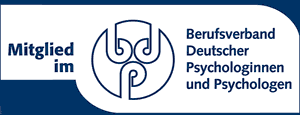Self-confident behavior
Training in Hamburg-Altona-Ottensen & Plön Holstein
Self-Confident Behavior: Characteristics and Effects
Self-confident behavior is characterized by the following features:
- Positive Self-Perception:
- Recognizing and avoiding self-deprecating thoughts
- Cultivating healthy self-respect
- Developing respect for oneself and one’s own needs
- Strengthening Self-Esteem:
- Promoting a positive self-assessment
- Building a stable and balanced self-image
- Improving Assertiveness:
- The ability to express and stand up for legitimate demands and requests appropriately
- The competence to reject unjustified demands from others in a respectful manner
- Self-Assertion Without Aggression:
- Clear distinction from aggressive behavior
- Maintaining a balanced attitude between self-assertion and consideration for others
- Consideration of All Parties Involved:
- Awareness of one’s own needs and rights
- Simultaneous respect for the needs and rights of others
- Constructive Problem Solving:
- Active effort to reach fair compromises
- Striving for solutions that are beneficial to all parties involved
Self-confident behavior thus promotes not only personal growth and well-being but also contributes to more harmonious interpersonal relationships and more effective communication.
Self-confidence in dealing with conflict partners
Hamburg Altona Ottensen & Plön Holstein
Guide to Self-Confident, Nonviolent Communication in Conflict Situations, as Practiced in the Coaching and Psychotherapy Offices of Egon Molineus in Hamburg-Altona-Ottensen and Hohwacht-Baltic Sea-Plön-Holstein:
This guide provides a structured approach to effective and respectful conflict resolution. Its aim is to improve communication and foster constructive solutions.
- Emotional Preparation
- Priority: Achieving a state of emotional stability and rational thinking
- Ongoing self-regulation throughout the conversation
- Self-Reflection
- Analyzing one’s own emotions
- Identifying unmet needs
- Developing concrete solution strategies
- Situation Assessment
- Realistic evaluation of the chances for a positive conflict outcome
- Communicative Expression
- Use of “I” statements
- Appropriate tone and volume of voice
- Objective and precise wording
- Focused and concrete expression
- Avoidance of unnecessary apologies
- Clear emphasis on one’s own feelings and their relevance
- Active Listening
- Asking about the other person’s perspective and wishes
- Dealing with Negotiation Resistance
- Maintaining focus
- Persistently insisting on willingness to negotiate
- Gradually highlighting possible consequences
- Consistently implementing announced measures in case of continued refusal
- Solution Proposals
- Presenting realistic behavioral modifications
- Specifying achievable goal adjustments
- Involvement of the Other Party
- Encouraging the other person to develop their own solution ideas
- Cooperative Negotiation
- Striving for a mutually satisfactory resolution
- Willingness to compromise and active listening
- Binding Agreement
- Written documentation of the agreed arrangements
- Definition of a time frame for implementation
This methodology is part of the Social Competence Training / Self-Confidence Training conducted by Dipl.-Psych. Egon Molineus, Psychological Psychotherapist specializing in Behavioral Therapy, in Hamburg-Altona-Ottensen. The training takes place in behaviorally oriented group therapy sessions.
Self-confidence & Social Competence Training
Dipl.-Psych. Egon Molineus – Professional Social Competence Training in Hamburg Altona-Ottensen
Dipl.-Psych. Egon Molineus, psychological coach and psychotherapist specializing in behavioral therapy, offers highly effective Social Competence / Self-Confidence Training at his practice in Hamburg Altona-Ottensen. This group therapy is specifically designed for individuals suffering from social anxiety or an insecure/avoidant personality who wish to strengthen their social skills.
Therapeutic Approach and Process:
Before the start of group therapy, individual sessions are held to establish a trusting relationship between therapist and client—an essential foundation for effective and goal-oriented support within the group.
Core Goals of the Therapy:
- Reduction of fears of criticism and rejection
- Decrease of inhibition and avoidance behavior
- Improvement of self-awareness and self-evaluation
- Development of self-confidence in social interactions
- Enhancement of assertiveness and conflict management skills
- Strengthening of decision-making ability and personal responsibility
- Building of new social contacts and relationships
Methodological Approach:
The therapy group is based on a holistic behavioral therapy concept and includes:
- Establishing a trusting and respectful group atmosphere
- Targeted exercises to enhance emotional awareness and expression
- Practical training of communication skills
- Gradual exposure exercises within and outside the group
- Use of role-playing and video feedback
- Cognitive restructuring of dysfunctional thought patterns
- Strengthening of self-esteem through positive reinforcement and experiences of success
Dipl.-Psych. Egon Molineus’ therapeutic approach is characterized by its scientifically grounded methodology and its individual tailoring to participants’ needs. In a safe environment, clients are empowered to gradually overcome social anxieties and lead a more self-confident life.
Memberships:









